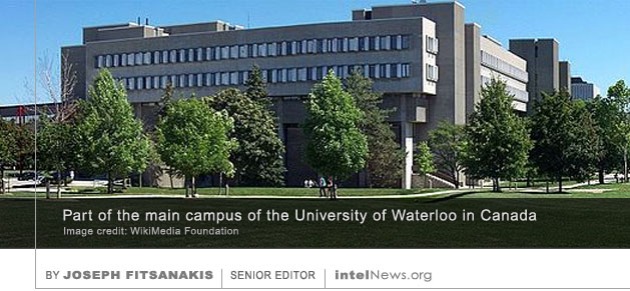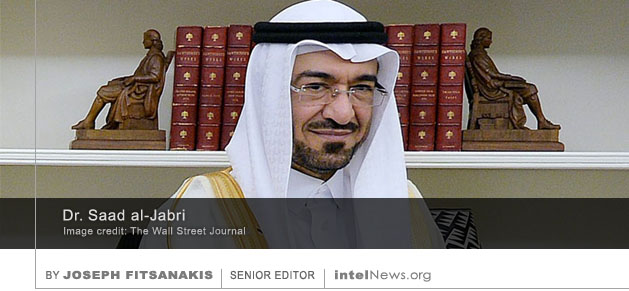Canadian judge bars Chinese PhD student from entering, citing espionage concerns
January 8, 2024 5 Comments
 IN AN UNPRECEDENTED AND potentially highly consequential decision, a judge has barred a Chinese PhD student from entering Canada over concerns he might be pressured to spy by the government of China. The case could have “ripple effects” on universities across Canada and possibly even all of North America, according to legal experts.
IN AN UNPRECEDENTED AND potentially highly consequential decision, a judge has barred a Chinese PhD student from entering Canada over concerns he might be pressured to spy by the government of China. The case could have “ripple effects” on universities across Canada and possibly even all of North America, according to legal experts.
The central figure in the case is Yuekang Li, a citizen of China, who was accepted into the Mechanical and Mechatronics Engineering PhD program of the University of Waterloo. Li stated in his application that his goal was to return to his home country after receiving his PhD and work to “improve its public health system”. However, when Li applied for a graduate student visa, his application was denied by an officer of Immigration, Refugees and Citizenship Canada (IRCC), the government department that oversees applications for entry visas into the country.
In deeming Li inadmissible to Canada, the IRCC officer in charge of his case reportedly cited the student’s strong interest in microfluidics, a niche branch of nanotechnology with a wide range of applications in the biopharmaceutical industry. The IRCC officer also noted growing concerns in the West about the use of students and researchers as “non-traditional collectors of information” by the government in Beijing. In a number of such cases, Chinese students and researchers have been given permission by the Chinese state to work abroad with the understanding that they will deliberately collect information that will benefit China’s military-industrial complex.
Li promptly challenged the IRCC’s decision, which ended up being heard in Federal Court. Li’s legal representatives argued that the rejection of his application for a student visa relied on “an overly broad definition of espionage” and engaged in “speculation”, rather than factual evidence. But on December 22, Federal Court Chief Justice Paul Crampton sided with the IRCC.
In his decision, which was made available late last week, the judge agrees with the IRCC’s view that the graduate research Li proposed to carry out at the University of Waterloo would fall under the definition of “non-traditional espionage”. He referred to China as a “hostile actor” and cautioned that such actors “increasingly make use of non-traditional methods to obtain sensitive information in Canada or abroad, contrary to Canada’s interests”. Given that new reality, Canada’s legal understanding of what constitutes “espionage” must evolve”, Judge Crampton argues in his decision.
► Author: Joseph Fitsanakis | Date: 08 January 2024 | Permalink
 THE GOVERNMENT OF CANADA expelled a senior Indian diplomat on Monday, after accusing “agents of the government of India” of having perpetrated the assassination of a Canadian citizen on Canadian soil last June. Canadian Prime Minister Justin Trudeau released information about the alleged assassination during a rare emergency statement to parliament on Monday morning. He also warned India that Canada would continue to work with its allies around the world, including the United Kingdom, to unearth further intelligence about the alleged assassination.
THE GOVERNMENT OF CANADA expelled a senior Indian diplomat on Monday, after accusing “agents of the government of India” of having perpetrated the assassination of a Canadian citizen on Canadian soil last June. Canadian Prime Minister Justin Trudeau released information about the alleged assassination during a rare emergency statement to parliament on Monday morning. He also warned India that Canada would continue to work with its allies around the world, including the United Kingdom, to unearth further intelligence about the alleged assassination. AUTHORITIES IN CANADA ARE reportedly probing claims that the Chinese government is operating at least two “clandestine police stations” in Montreal, which allegedly monitor the activities of Chinese citizens and Canadians of Chinese origin. The announcement comes less than four months after a similar
AUTHORITIES IN CANADA ARE reportedly probing claims that the Chinese government is operating at least two “clandestine police stations” in Montreal, which allegedly monitor the activities of Chinese citizens and Canadians of Chinese origin. The announcement comes less than four months after a similar  A KEY COMMITTEE IN the Parliament of Canada passed a motion late last week that calls on the government to investigate allegations of foreign interference in the country’s general elections. Last Thursday’s vote by the Standing Committee on Procedure and House Affairs came soon after its members attended closed-door testimony by senior intelligence officials, which touched on various topics relating to the national security of Canada.
A KEY COMMITTEE IN the Parliament of Canada passed a motion late last week that calls on the government to investigate allegations of foreign interference in the country’s general elections. Last Thursday’s vote by the Standing Committee on Procedure and House Affairs came soon after its members attended closed-door testimony by senior intelligence officials, which touched on various topics relating to the national security of Canada.
 PERSISTENT RUMORS ABOUT THE existence of federal informants in their midst are dividing some of the American far-right groups that participated in last month’s attack on the Capitol in Washington. As Yahoo News’ Will Sommer and Kelly Weille correctly
PERSISTENT RUMORS ABOUT THE existence of federal informants in their midst are dividing some of the American far-right groups that participated in last month’s attack on the Capitol in Washington. As Yahoo News’ Will Sommer and Kelly Weille correctly  A LAWSUIT FILED IN a United States court by a Saudi former senior intelligence official, accuses Saudi Arabia’s crown prince Mohammed bin Salman of planning an illegal assassination on Canadian soil. But in a new court filing, the crown prince denies the accusation and claims that it is an attempt to distract attention from the alleged crimes carried out by the plaintiff.
A LAWSUIT FILED IN a United States court by a Saudi former senior intelligence official, accuses Saudi Arabia’s crown prince Mohammed bin Salman of planning an illegal assassination on Canadian soil. But in a new court filing, the crown prince denies the accusation and claims that it is an attempt to distract attention from the alleged crimes carried out by the plaintiff. Canadian border guards thwarted a sophisticated plot to kill a Saudi former senior intelligence official, who has been targeted by the oil kingdom’s crown prince because he served a rival member of the royal family, according to a lawsuit filed in an American court.
Canadian border guards thwarted a sophisticated plot to kill a Saudi former senior intelligence official, who has been targeted by the oil kingdom’s crown prince because he served a rival member of the royal family, according to a lawsuit filed in an American court. The son of a Russian couple, who fraudulently acquired Canadian citizenship before being arrested for espionage in the United States, has won the right to keep his Canadian citizenship, which was effectively annulled when his parents were found to be Russian spies.
The son of a Russian couple, who fraudulently acquired Canadian citizenship before being arrested for espionage in the United States, has won the right to keep his Canadian citizenship, which was effectively annulled when his parents were found to be Russian spies. Since the election of President Donald Trump, the issue of border security between the United States and Mexico has been a major topic of national debate. But is the incessant focus on America’s southern border by the news media and politicians ignoring security concerns emanating from the country’s northern neighbor, Canada? In a thought-provoking
Since the election of President Donald Trump, the issue of border security between the United States and Mexico has been a major topic of national debate. But is the incessant focus on America’s southern border by the news media and politicians ignoring security concerns emanating from the country’s northern neighbor, Canada? In a thought-provoking  The manipulation of social media by foreign governments aiming to sow division in Canada ahead of the country’s federal election in October is growing, according to the country’s signals intelligence agency. In a report published Monday, the Communications Security Establishment (CSE), Canada’s national communications interception agency, warns that election meddling by foreign powers is already taking place. The
The manipulation of social media by foreign governments aiming to sow division in Canada ahead of the country’s federal election in October is growing, according to the country’s signals intelligence agency. In a report published Monday, the Communications Security Establishment (CSE), Canada’s national communications interception agency, warns that election meddling by foreign powers is already taking place. The  Prosecutors in the United States have informed lawyers representing the Chinese telecom- munications firm Huawei that they intend to use evidence obtained through secret surveillance in a lawsuit against the company. The case involves the arrest of
Prosecutors in the United States have informed lawyers representing the Chinese telecom- munications firm Huawei that they intend to use evidence obtained through secret surveillance in a lawsuit against the company. The case involves the arrest of  An American former Marine, who faces espionage charges in Russia, is a citizen of at least three other countries, namely Canada, Britain and the Republic of Ireland, according to reports. Paul Whelan, 48, was arrested by Russia’s Federal Security Service (FSB) on December 28 at the Metropol, a five-star hotel in downtown Moscow. News of Whelan’s arrest first emerged on January 3 in a
An American former Marine, who faces espionage charges in Russia, is a citizen of at least three other countries, namely Canada, Britain and the Republic of Ireland, according to reports. Paul Whelan, 48, was arrested by Russia’s Federal Security Service (FSB) on December 28 at the Metropol, a five-star hotel in downtown Moscow. News of Whelan’s arrest first emerged on January 3 in a  An unprecedented “flood of bomb threats” prompted hundreds of evacuations and closures of private buildings, transport hubs and offices in four countries on Thursday, causing confusion and in some cases panic. The threats —which numbered in the hundreds— were issued throughout the day Thursday against businesses, schools, hospitals and media companies in the United States, Canada, New Zealand and the United Kingdom. It is the first time in history that such a large wave of bomb threats was issued against so many targets internationally.
An unprecedented “flood of bomb threats” prompted hundreds of evacuations and closures of private buildings, transport hubs and offices in four countries on Thursday, causing confusion and in some cases panic. The threats —which numbered in the hundreds— were issued throughout the day Thursday against businesses, schools, hospitals and media companies in the United States, Canada, New Zealand and the United Kingdom. It is the first time in history that such a large wave of bomb threats was issued against so many targets internationally. The daughter of the founder of Huawei Technologies, one of the world’s leading telecommunications hardware manufacturers, has been arrested in Canada, reportedly at the request of the United States. Meng Wanzhou (pictured, also known as Sabrina Meng) serves as Huawei’s deputy chair and chief financial officer. She is the daughter of Ren Zhengfei a former officer in the Chinese People’s Liberation Army, who established the company in 1988 and has since amassed a personal fortune estimated at $3.5 billion. By virtue of her family background and position in Huawei, Meng is often
The daughter of the founder of Huawei Technologies, one of the world’s leading telecommunications hardware manufacturers, has been arrested in Canada, reportedly at the request of the United States. Meng Wanzhou (pictured, also known as Sabrina Meng) serves as Huawei’s deputy chair and chief financial officer. She is the daughter of Ren Zhengfei a former officer in the Chinese People’s Liberation Army, who established the company in 1988 and has since amassed a personal fortune estimated at $3.5 billion. By virtue of her family background and position in Huawei, Meng is often 





